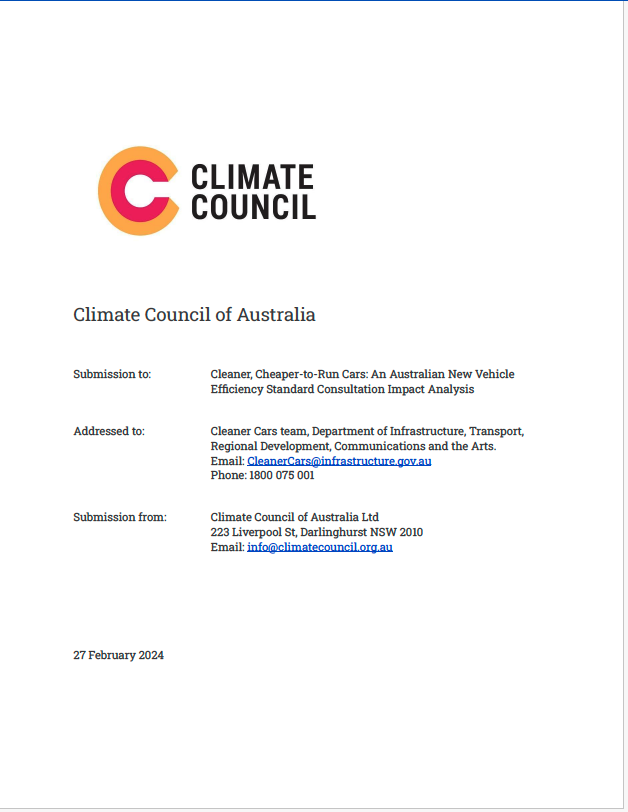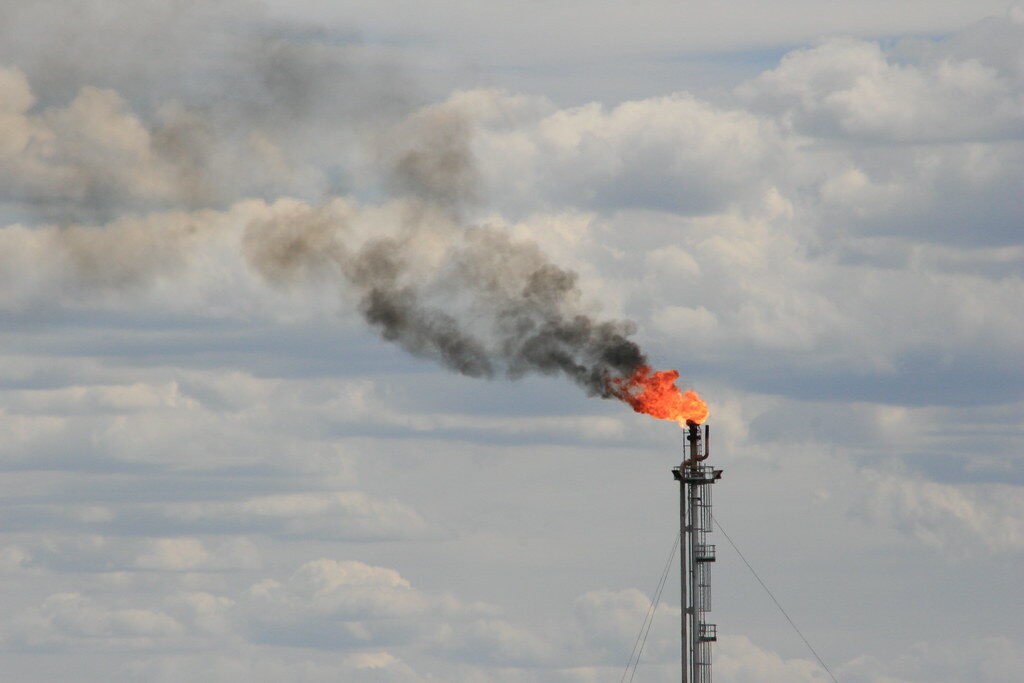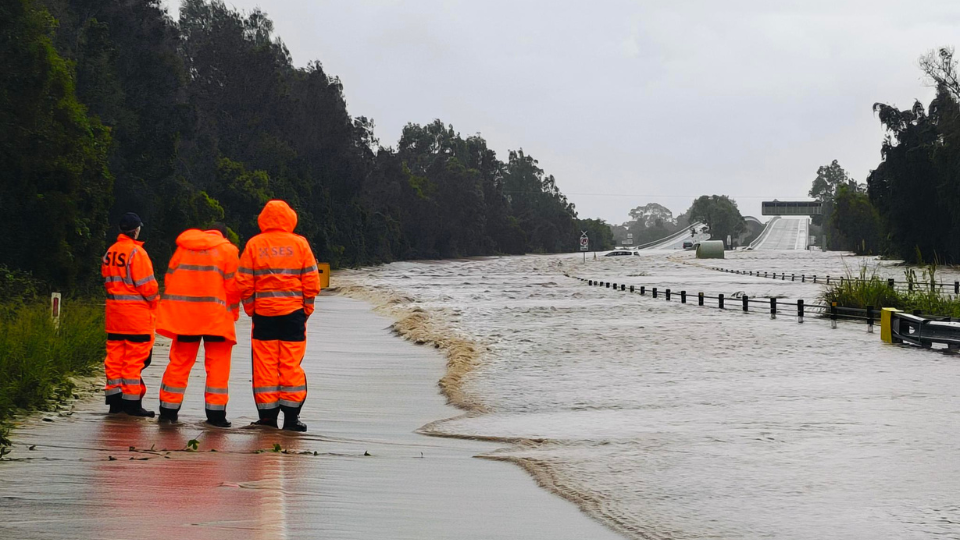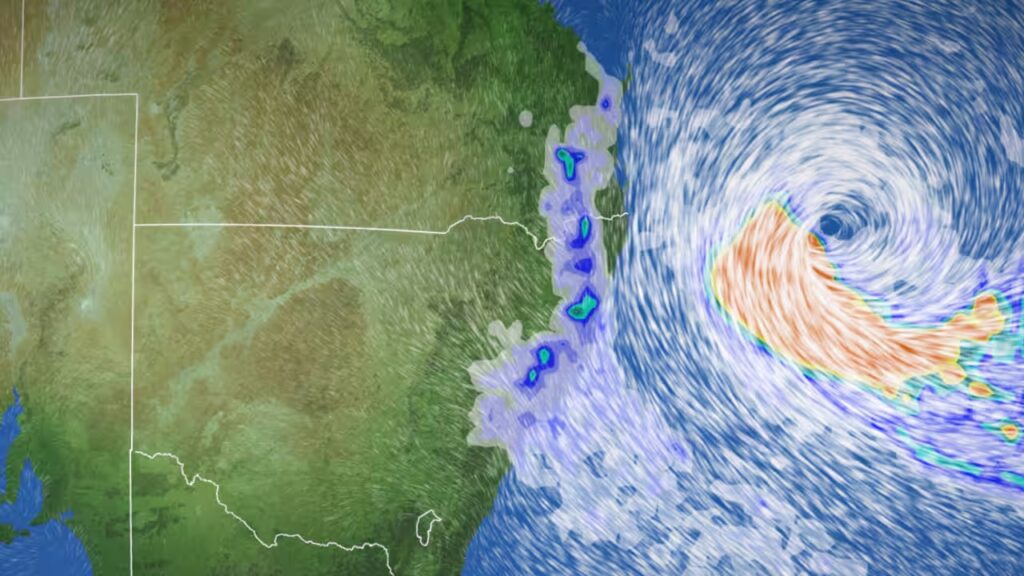Cleaner, Cheaper-to-Run Cars: An Australian New Vehicle Efficiency Standard Consultation Impact Analysis
The Climate Council welcomes the Australian Government’s announcement of preferred settings for the New Vehicle Efficiency Standard (NVES). This is an important opportunity to improve the efficiency of Australia’s cars, utes and vans; cut costs for drivers and reduce harmful carbon pollution from our new car fleet. We welcome the Government’s commitment to delivering this reform so that Australians can start sharing in the benefits of cleaner cars that are cheaper to run, which are already being enjoyed by millions of drivers around the world.
Implementing clear policies to address harmful pollution is an urgent priority now. The year 2023 was the world’s hottest ever, with July being the first time in which the global average temperature rise spiked 1.5 degrees celsius (°C) above pre industrial levels (WMO, 2024).
Every fraction of a degree of further warming increases the risk of escalating climate impacts. This would mean more families uprooted by fires and floods, more communities wilting under extreme heatwaves, more damage to iconic ecosystems like the Great Barrier Reef, and escalating risks to our collective safety and security (Climate Council, 2023a).
That is what’s at stake as we seek to rapidly cut harmful carbon pollution this decade -and why the proposed New Vehicle Efficiency Standard is so necessary. Fortunately, while focused action to cut emissions is more urgent than ever, it is also more possible than ever before – particularly in a high-emitting sector like transport.
An effective fuel efficiency standard will mean Australians gain access to the efficient new cars manufacturers are already selling around the world – where over 85 percent of the market is already covered by similar standards. This will bring cheaper costs and greater choice, while cutting harmful pollution for a safer and cleaner environment for all Australians to enjoy.
The Climate Council supports the key common features outlined in options B and C for Australia’s NVES (DITRDCA, 2024) as minimum starting points for unlocking Australia’s low and zero emissions vehicle market as soon as possible. In summary, the features from these options we support and strongly recommend be included in the final scheme design include:
- An average annual emissions ceiling trajectory which seeks to deliver significant improvements in average fleet efficiency and reductions in pollution this decade – catching up to the USA as a minimum before the end of this decade;
- A simple and transparent approach to crediting which does not make use of ‘super credits’, ‘off cycle credits’ or other manufacturer flexibility arrangements which can distort and undermine the scheme’s outcomes;
- Appropriate categorisation of vehicle types into the two proposed categories, ensuring all passenger vehicles including SUVs are treated as such;
- Inclusion of penalties at a sufficiently strong rate to encourage positive compliance;
- Commencement at the earliest possible opportunity, being 1 January 2025.











